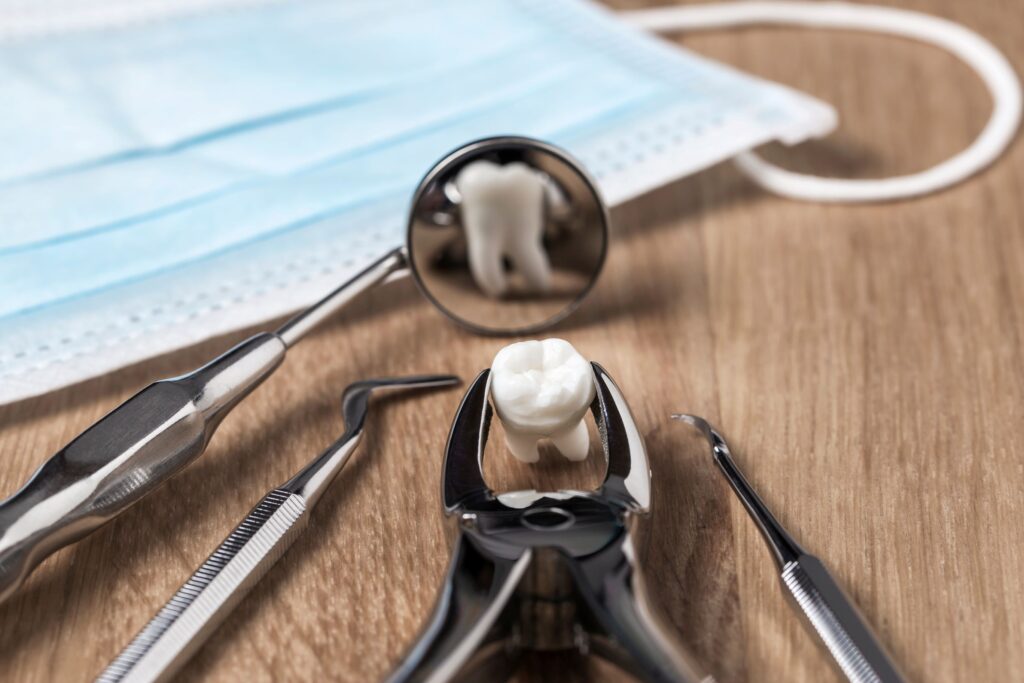
Under normal circumstances, you can count on your dentist to do everything they can to protect and preserve your natural teeth and gums. Then, if you develop a problem, they provide services to address it while maintaining your smile.
However, if you have a severely damaged, broken, infected, or impacted tooth that cannot be effectively repaired, they may have no recourse except to extract and replace it. Afterwards, you must follow their post-op instructions to avoid a painful complication known as dry socket. Continue reading to learn more about what this is and how to prevent it!
What Happens During a Tooth Extraction?
If you’re scared your tooth extraction might hurt, you’re not alone. Thankfully, your dentist knowns many people feel anxious when it comes to removing troublesome teeth and will do everything they can to soothe your frayed nerves. For example, they’ll begin your procedure by numbing the area and/or providing a sedative to help you feel calm and comfortable the entire time.
Then, they’ll create a small incision in your gums and place a special instrument called an elevator to loosen it from the socket. Next, they’ll grasp it with forceps and gently wiggle it until it slips free. Sometimes, molars must be broken into smaller pieces to be carefully removed without causing additional damage to your jawbone during extraction.
What is Dry Socket?
After your appointment, your mouth must form a blood clot to protect the now-exposed nerves and bone tissue. If this clot is damaged or dislodged, bacteria in your mouth can penetrate the tender materials, increasing the risk of aches, inflammation, and infection. This painful reaction is known as dry socket, and it can thankfully be avoided by following your dentist’s post-op instructions carefully.
How Can I Prevent Dry Socket?
Your dentist will provide information about how to care for yourself following your procedure to avoid adverse effects, like dry socket. Potential orders can include:
- Drinking plenty of fluids from a glass. You’ll need to remain hydrated, but the force of suction when using a straw can dislodge your blood clot.
- Clean your mouth gently. Don’t vigorously brush, rinse, or spit because you can damage the clot and hinder your recovery.
- Avoid strenuous activity. Anything that elevates your blood pressure or heart rate can hinder your healing.
- Stick to soft foods. Avoid anything too hard or sticky that might injure the clot.
Fortunately, dry socket often heals on its own after a week or two as new tissues form to cover the extraction site. In the meantime, applying ice packs and taking over-the-counter pain meds are usually safe ways to address your discomfort!
About the Practice
At Dental Wellness of Lexington, people of all ages benefit from a team of dentists dedicated to helping families build and maintain happy, healthy smiles. They share decades of combined experience providing a comprehensive menu of services and can help with everything from basic preventive treatments to more complex procedures, including extractions. They combine a compassionate approach with state-of-the-art equipment to improve patient comfort while delivering accurate results. Plus, they offer various sedatives to help you feel calm regardless of the reason for your visit. You can request an appointment on the website or call (859) 223-4644.

